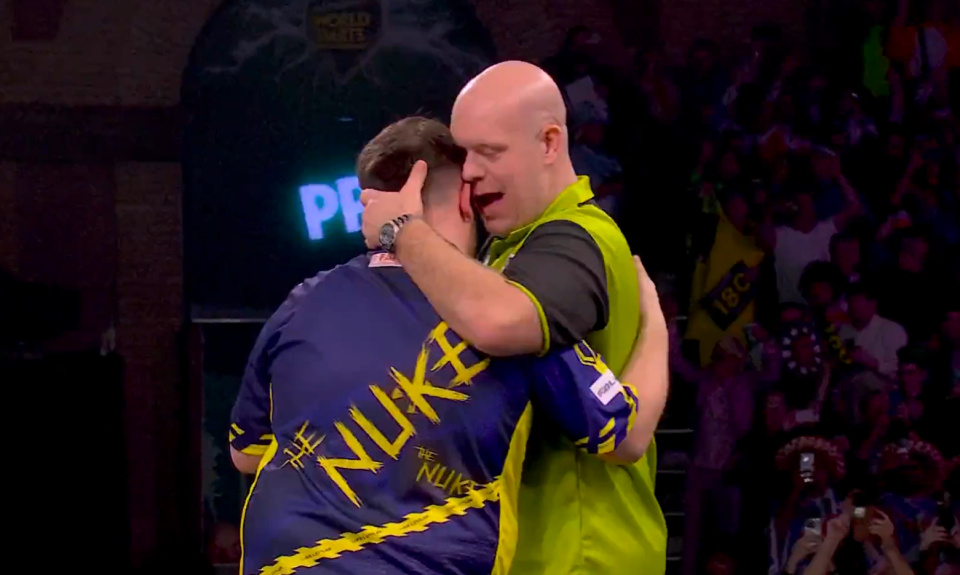
The phrase “Darts’ last statements” can be interpreted in multiple ways depending on the context in which it’s used.
It could refer to the closing remarks of a player in a dart match, a metaphorical statement linked to the sport, or even an artistic or cultural interpretation involving the game of darts. Below, we will explore a variety of potential meanings and interpretations of the phrase.

1. The Last Words of a Darts Player in a Match
In the most straightforward sense, “Darts’ last statements” could refer to the final words or expressions of a player during or after a dart match.
Darts is a game where tension, competition, and strategy are key, often culminating in a dramatic finish. In a professional setting, players might make final remarks after securing a win or loss. These statements could be emotional, reflecting the highs and lows of the sport.
For example, a champion might express relief and gratitude, while a defeated player might offer words of disappointment but promise to return stronger.
In major events like the PDC World Darts Championship, the final moments are especially tense, and players might offer post-match interviews where their “last statements” reveal their mental state, appreciation for their supporters, or analysis of the match.
These remarks might be about their performance, the impact of the win or loss on their career, or reflections on the nature of the sport itself.

2. Metaphorical Last Statements in the Game of Darts
“Darts’ last statements” could also be seen as a metaphor for the closing act of a competition or situation, the culmination of effort, strategy, and decision-making.
Darts is a game where precision and mental fortitude are key, and each throw could represent a decision, a statement of intent, or a final stand. In this metaphorical context, the phrase might refer to the final action or strategic move that determines the outcome of a larger situation.
For example, in a business context, “darts’ last statements” could refer to the final decisions made by a leader or key player that lead to the success or failure of an initiative.
Just as in darts, where the last dart determines the score and the game’s winner, these metaphorical “last statements” could signal the closing moments of a critical decision-making process.
3. Cultural or Artistic Representations of Darts’ Last Statements
The phrase might also be used in an artistic or cultural sense. Darts, as a sport, carries a rich history and has found its way into literature, films, and art.
In such contexts, “Darts’ last statements” could be the symbolic closing words or actions of a character involved in the sport, or perhaps the final match in a series of competitions that marks the end of an era or a transformation in the game’s culture.
In a piece of fiction, a character might be seen playing darts as a way to cope with life’s struggles, and their “last statement” could represent the culmination of their journey, the last throw of the dice, or the end of a cycle in their life. The phrase could be a dramatic finale that ties together themes of fate, choices, and resolution.
4. The Last Words of Darts as a Sport
Lastly, “Darts’ last statements” could symbolize a metaphorical end to the sport itself. Although darts continues to thrive as a popular pastime and professional sport, the idea of the “last statement” might evoke questions about its future.

This could come in the form of a major change in the way the sport is played, perceived, or governed. In this interpretation, “darts’ last statements” could indicate a moment of transition or even a reflection on the cultural significance of the game.
In a broader sense, the phrase could touch on the evolution of darts, where the introduction of new rules, formats, or technologies might change how players and fans view the sport. The “last statements” could refer to a period of closure or transformation as darts continues to adapt and grow.
Conclusion
In summary, the phrase “Darts’ last statements” can have a wide range of interpretations. It could be the final remarks of a player, a metaphor for decisive actions in various contexts, or a reflection on the broader evolution of the sport.
Each interpretation, whether literal, metaphorical, or artistic, provides a unique perspective on the concept of finality and conclusion, a theme that resonates with the nature of competition and the human experience.





